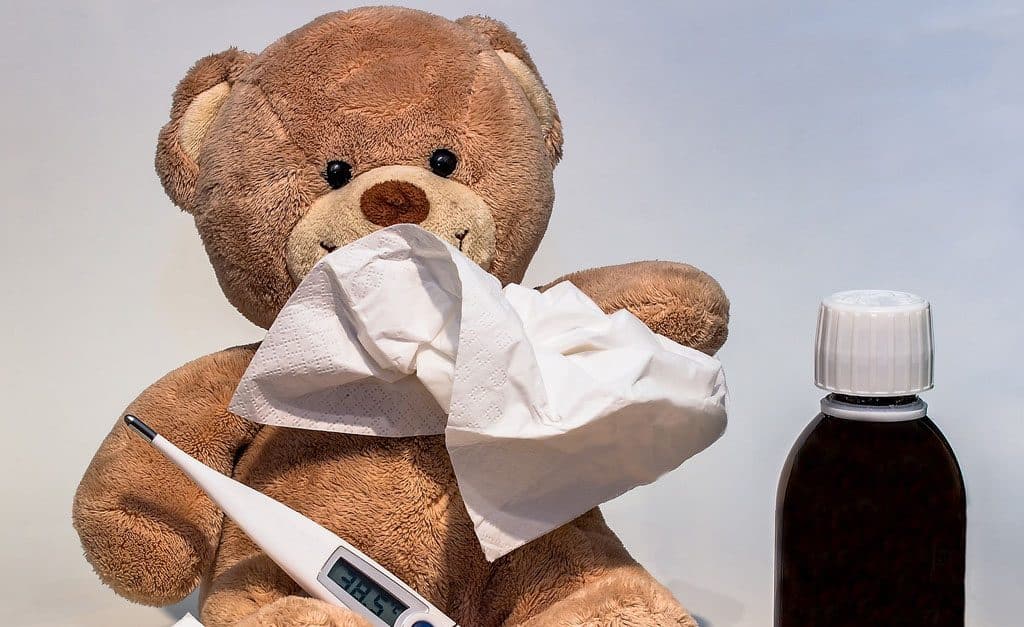You’ve been going along for about a week or so on the ketogenic diet and things are amazing!
You’ve got more energy.
You can focus better.
You’re sleeping better than you have in ages.
You’ve even dropped a few pounds.
And then, one morning you wake up and BAM!
You feel like you got run over by a semi.
What gives?
This keto thing is supposed to be all rainbows and sunshine!
Well, my friend, you may be having a close encounter of the keto flu kind.
Yup.
It’s really a thing.
And most people transitioning to a keto lifestyle have the symptoms to one degree or another.
And here’s why.
What Causes the “Keto Flu”?
The ketogenic diet is high in fats, and low in carbs. Most of us, at least in this country, are used to eating way too many carbs.
That includes all the sugar that we eat on a daily basis as well as breads, pasta, rice, potatoes…you know the stuff. AND we eat too much fat.
Because we eat a diet high in carbs and fats, our bodies will burn off the sugar first and store everything else as fat.
Sugar is the most readily available fuel source, so it’s consumed first.
Any sugar that doesn’t get burned off, also gets stored as fat. Which, honestly, is probably more that we realize.
When you switch to a high fat, low carb diet, suddenly all that sugar is no longer available for fuel.
Eating a ketogenic diet makes our bodies change from predominately burning sugar for fuel, to predominately burning fat.
And that’s a good thing.
As this change occurs, our bodies go through an adjustment period.
This adjustment period includes withdrawal from sugar.
Depending on how much sugar you have everyday, that could be akin to going cold turkey from a drug.
Only not quite so bad.
Maybe.
10 Signs of the Keto Flu
So, what kind of symptoms are we talking about with the keto flu?
- headaches
- drowsiness
- lethargy
- difficulty focusing
- weakness
- stomach discomfort
- nausea
- constipation
- muscle cramps
- dizziness
If you become lightheaded, or experience cramps, you are most likely dehydrated and/or lacking in electrolytes.
The keto diet acts as a diuretic. So if you aren’t drinking the amount of water that your body needs you will most likely become dehydrated.
It’s crazy to me to think that most people are carrying drinks around with them all the time now, and yet we are a pretty chronically dehydrated lot.
Mostly because people aren’t drinking water. They’re drinking all kinds of other things.
There are 2 ways to correct an electrolyte imbalance:
The easiest way is to drink some pickle juice. As long as it’s not sweet pickles.
But you knew that already.
I know, sounds weird, but that will replace sodium as well as potassium and magnesium and stop the muscle cramps.
The best way to combat electrolyte imbalance is to take a supplement with the 4 most important electrolytes. Those are Magnesium, Potassium, Sodium, and Calcium.
I like this electrolyte supliment from Perfect Keto. It’s got the big 4 that I listed above. And these are capsules that you can take daily and/or anytime you feel like you need them.
What Can You Do About It?
To help mitigate the other keto flu symptoms, there are several things you can do.
The first thing of course, is to transition more slowly into the keto diet. The symptoms won’t be nearly as noticeable.
If you need some help transitioning to the keto diet, the 7 Day Easy Eating Keto Menu Plan will get you well on your way!
So, what else?
- Make sure that you drink plenty of water. What’s plenty? Plenty is a minimum of 1/2 ounce of water per pound of body weight.
So if you weight 150 pounds, you need to drink 75 ounces of water per day.
Not coffee.
Or tea.
Not vitamin water or Gatorade or any of those other things.
Just plain water.
Getting enough water helps with dehydration, but it also helps with constipation.
Water is an important part of the elemination process.
If you are dehydrated, your body will often cycle through phases of constipation and diarrhea to try to clean things out.
Ain’t nobody got time for that!
Drink your water!
- Make sure you are getting enough sleep. Especially during the first few weeks of the diet. You need 7-8 hours of sleep every night. And you might need more while your body is detoxing.
I know, I know, you don’t have time.
Find the time.
Seriously.
Your health is important.
Not getting enough sleep has been linked to depression, weight gain, and an inability to focus or concentrate.
And it just makes people cranky.
Don’t be cranky. Go to bed earlier instead.
- Make sure you are hitting your macro goals. Eating the right amount of fat will provide energy for your body as you transition into this new way of living.
Because most of us eat a diet that is crazy high in sugar, it’s gonna take a minute for your body to get used to burning fat for fuel instead.
And it’s gonna be looking for that quick sugar fix it’s used to.
But you’re going to be feeding it fats instead.
It’s important that you have easily accessible fat in place of the sugar to help your body adapt to fat burning.
It can be difficult at first to get enough fat without eating more protein than you should. It gets easier as you go, though.
So make sure that you are tracking your macros.
After about 2 weeks or so your body will become adapted to burning fat as it’s primary fuel source and everything should settle down.
Except everything will be better than it was before.
You’ll have more energy, sharper focus, and be more productive.
A lot of people wake up before their alarms all bright eyed and bushy tailed.
Personally, my favorite part is that I no longer have the joint pain that has plagued me for the past decade.
And you know what? I don’t miss it a bit!
Peace, love, & keto chocolate!
If you are just getting started with a ketogenic lifestyle, or are thinking about it, have a read through my 5 Things I Wish I’d Done Before Going Keto post so you don’t make the same mistakes I did.



